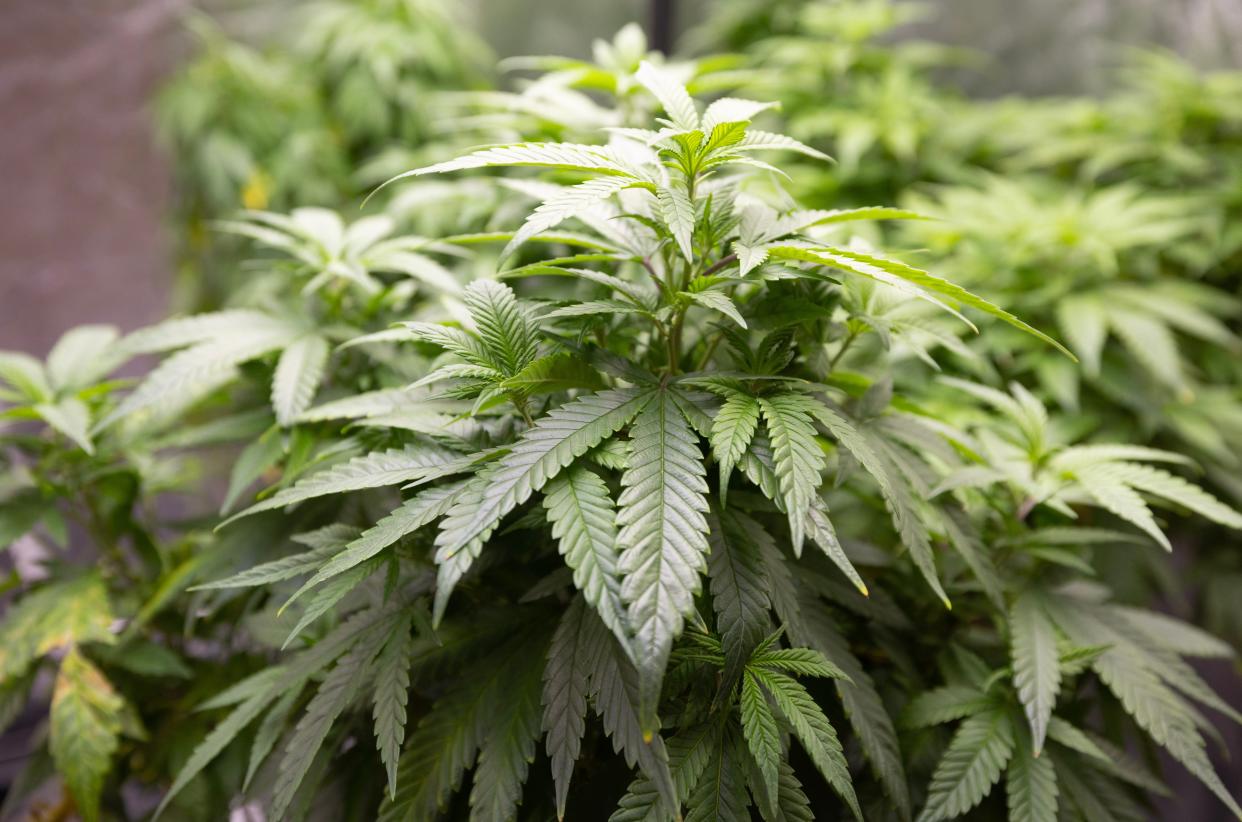Is pot legal now? Despite big marijuana news, it's still in legal limbo.
Tuesday brought big marijuana news: The Biden Administration is expected to soon reclassify marijuana for the first time in decades, putting it in a less restrictive drug category that would allow it to be studied and prescribed more easily.
But that news comes in a nation where many states have already crafted their own marijuana policy: Some states allow for it to be prescribed already; others allow people to use it recreationally. Few states ban it outright.
For years, a confusing patchwork of marijuana laws have blanketed the nation. And Tuesday's news will only make things more confusing for the moment. Here's what to know.
What happened with pot on Tuesday?
On Tuesday, a source familiar with the process confirmed that they plan to reclassify marijuana for the first time since the Controlled Substances Act was signed in 1970.
Since that time, it's been considered a Schedule I drug – believed highly dangerous, addictive and without medical use.
Soon it should be considered a Schedule III drug that can be lawfully prescribed as medication regulated by the FDA.
Does that mean marijuana will be legal in the US?
Even with these new rules, marijuana will still be considered a controlled substance. That means there are federal laws governing how it can be used — and those rules would be for prescribed medical purposes.
It would be considered similar to Tylenol with codeine or anabolic steroids — legal when taken for prescribed medical uses.
Supreme Court: Trucker failed drug test after taking CBD supplement. Supreme Court to decide if he can sue
However, because marijuana has been considered highly dangerous, addictive and without medical use for so long, there will be a process for determining what prescribed medical purposes the federal government will allow.
Is recreational marijuana legal in the US?
According to the federal government — no. That doesn't change with this planned classification shift.
Some states, however, disagree with the federal government and have created their own rules: Much of the country allows recreational use.
Explained: Why marijuana is both legal and illegal in US, despite Biden pardons.
In those cases, a strange and awkward legal arrangement unfolds where states disregard the federal government's stricter laws and the federal government generally doesn't enforce its own rules.
The end result: Recreational marijuana feels legal in much of the U.S., even if it technically isn't.

Is medical marijuana legal in the US?
This is where things get even more muddled.
Tuesday's announcement paves the way for the federal government to allow for marijuana prescriptions.
The catch: The FDA hasn’t approved the cannabis plant for any medical use (yet).
That said, federal regulators have approved several drugs containing cannabinoids, or substances such as THC or CBD found in the cannabis plant, according to the National Institutes of Health.
And, just as with recreational marijuana, states have widely disregarded the federal government's historically strict stance on medical marijuana and made their own patchwork of rules. Only a handful of states have a complete prohibition on marijuana, including South Carolina, Idaho, Kansas and Nebraska.
The end result: Medical marijuana feels legal in much of the U.S., even if it technically isn't (yet).
What else is confusing about marijuana's legal status in the US?
So much.
Just for starters, the Biden administration has been outspoken in its opposition to the federal government's stance on marijuana. But actually changing the position is a bureaucratic nightmare, only slightly improved by moving pot from a Schedule I to a Schedule III drug.
So in the meantime, they've announced legal workarounds with limited scope — things like pardoning certain federal marijuana-related crimes (although most convictions actually happen at the state level).
And for years, the federal government has had various rules about not challenging state's more permissive laws.
Plus, state laws often involve decriminalization — not legalization — of marijuana. That means the drug is still considered illegal, but punishments are reduced from prison time to paying a civil fine or attending treatment.
To eliminate the stark conflict between state and federal laws, marijuana would need to be removed from the Controlled Substances Act list altogether, experts and advocates previously told USA TODAY.
Experts say there's a chance that could happen eventually, but it's still a long way off.
This article originally appeared on USA TODAY: Is marijuana legal in the US? A shift in marijuana rules is coming.
